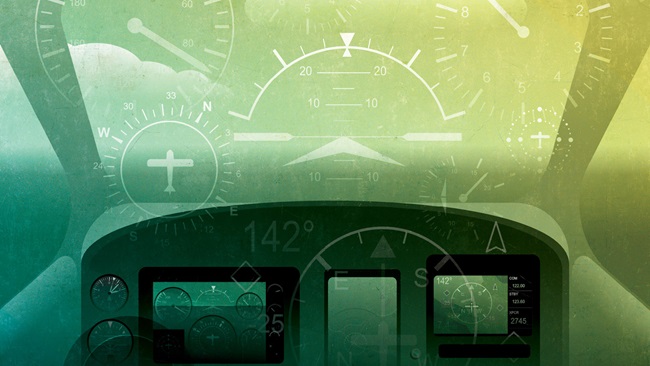Do your best
How to handle checkride failure
I used to almost make myself sick with nerves, until one wise coach saw what was happening and pulled me aside. “Look, you’ve shown up to practice every day to prepare for this race. Now today, the most anyone can ask is that you do your best. You might fall on your face when the gun goes off, or you might run so fast that you blow everybody away. Either way, go out there and run as hard as you possibly can, and we’ll all be proud.”
As a designated pilot examiner, I deal with nervous people every day, some of them so freaked out that they sit across the table and can’t even look me in the eye. This is a feeling I understand. And, in this situation, I think a little honest coaching would be helpful. First of all, if you have studied on your own and prepared with your instructor, chances are pretty good that you’ll pass. The national checkride passing percentage has historically sat around 80 percent. But there is always the chance that, for whatever reason, you won’t be successful.
Here’s what that particular “fall on your face” moment looks like. If a checkride task does not meet standards, the examiner is obligated to tell you, right then, that the checkride is unsatisfactory. So, if you haven’t heard those words, then you’re still passing. But if the examiner does let you know that something is unsatisfactory, the next steps are very important. You want to remain calm, clear your head, and ask if you can continue the checkride. Here’s why: At this point, all the pressure is off. If you keep testing, you can try to get credit for any remaining tasks. That way, when you come back for retest, the list will be very short.
In the debrief, keep in mind that you still want to retest with this person. (You have the right to retest with another examiner, but you will likely have to pay the full fee again, and perhaps do some additional tasks. I don’t advise it.) So, when you are discussing what went wrong, by all means be gracious. Do not blame your mistakes on anyone or anything else (including your instructor, the examiner, or the wind). This is the time to get a clear understanding of what tasks were unsatisfactory and why, and also to ask the examiner when you can get on their schedule for a retest. Then, meet with your instructor for more training on the areas that were weak, get back on that checkride horse, and wow the examiner with how well you can perform those few items you missed the first time.
People often ask about the implications of failing a checkride. Will it go on my record? Will I still be able to get an airline job? Yes, and yes. All your checkrides for a new pilot rating (the ones where you make formal application with an 8710-1 form) will be a part of your permanent pilot record. So, whatever you do, do not lie about this on future job applications. If you are asked about the failure during your airline interview, simply be honest and own the mistake. Chances are very good that the person interviewing you has also failed a checkride, so don’t stress here. Now, if you get into a situation where you are failing multiple checkrides, that may be a red flag to certain employers. So, if you have failed more than one checkride, take a good hard look at your training environment. Perhaps you and your instructor aren’t working well together, or maybe you just need more prep time in order to be successful. Personally, I’m a pretty slow learner, and I usually prefer extra hours in the airplane before I feel comfortable enough to be tested. There’s no shame in that.
Next time you show up for a checkride and feel so nervous that you can’t think straight, remember, the odds are in your favor that you’re going to walk away with a new pilot certificate. But, if things don’t go your way that day, it’s not the end of the world. You’ll get another shot at it. If you show up and give it your best effort, then that’s already something to be proud of.


